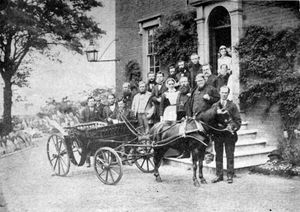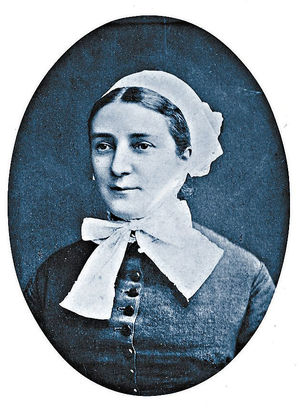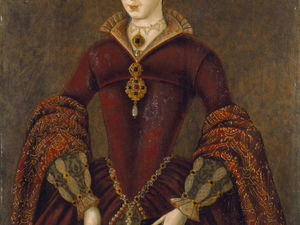Black Country town wept for a much-loved Victorian nurse
The Express & Star is marking its 150th anniversary with a series of features looking back at each decade - the big stories and how the newspaper developed over time. Mark Andrews reports.

The factories fell silent. Thousands of hardened railwaymen and labourers struggled to keep a stiff upper lip as they fought back tears at the news of Dora's untimely death. The hard-nosed Victorian industrialists, not normally known for allowing their workers to desert their labours, knew better than to crack the whip on this occasion.
The funeral of Dorothy Pattison, or Sister Dora, as she was better known, was a spectacle unlike anything Walsall had seen before.

After the official procession entered the cemetery, the gates were closed behind, but so desperate were the masses to see her last moments, that the masses who had been shut out broke them down. Despite this, it is said that they all remained quiet and respectful as she was laid to rest.
In 1875, within months of the launch of the Evening Express, Walsall had been gripped by a cholera epidemic, and Sister Dora had put her life on the line to treat infected patients.
As the epidemic gripped the town, a special hospital was set up in the unfortunately named Deadman’s Lane – now sensibly renamed Hospital Street – where Sister Dora worked for six months, risking her own life to treat infected patients. Many credited her work during this time, and her obsession with cleanliness in particular, to preventing the town from being over-run by the disease. But it was breast cancer rather than cholera which ultimately took Sister Dora's life at the age of 46. Her death came as a shock to her thousands of patients, from whom she had carefully concealed her illness.

Her funeral, on December 28, 1878, brought Walsall to a standstill as her coffin was carried through the town. Her personal life had been a somewhat messy affair, marred by a controlling father, a troubled family and a complicated love life in her youth. And some of the horrors she experienced during her 14 years as a nurse at the height of the Industrial Revolution would have left many people traumatised.Sister Dora arrived in Walsall in January, 1865, called to replace another nun who had been taken ill.





